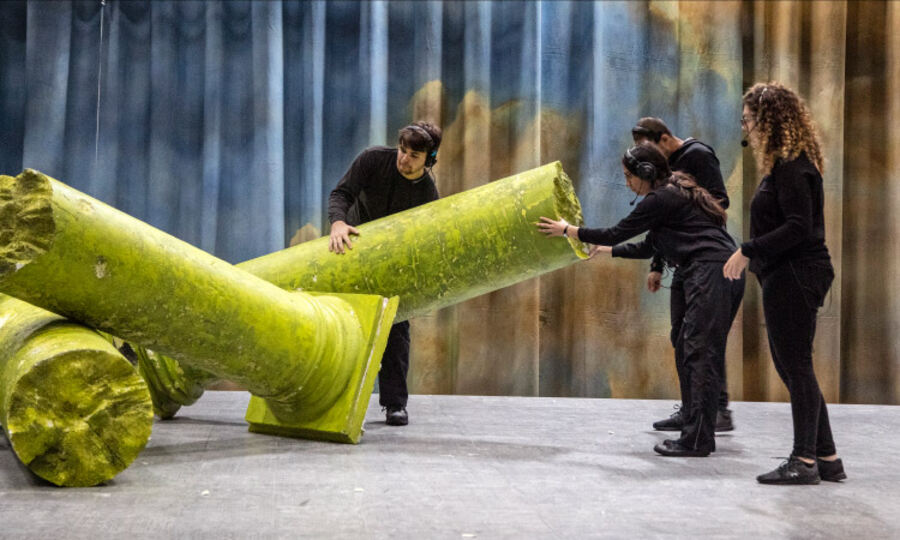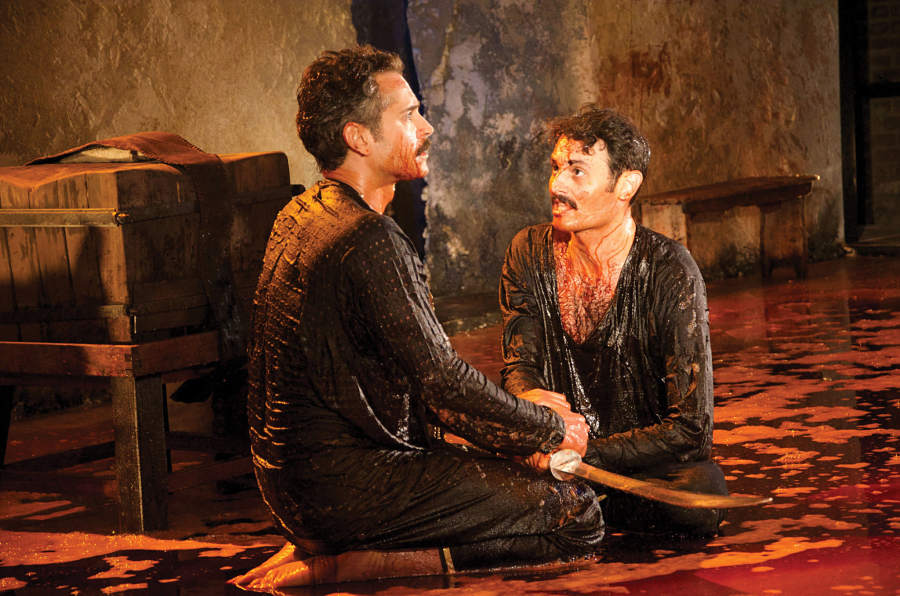It’s been cold in New York, and I’m more than ready for the Eastern redbuds to make an appearance. Theatregoing has been a welcome escape from the winter doldrums—Maybe Happy Ending and Gypsy were recent favorites! But theatre news, unfortunately, has been anything but cheery.
The tour of the children’s musical Finn, about a coming-of-age shark, was canceled as part of the Kennedy Center’s programming upheaval. While the cancellation was officially attributed to financial reasons, many speculate that its themes—centered around equity, diversity, and inclusion—may have played a role.
I was also saddened to hear that the Brown/Trinity Rep MFA programs in acting and directing will indefinitely pause new student admissions, following a temporary pause in 2023. The three-year training program, offered in partnership with Trinity Repertory Company, provides students with professional experience and became tuition-free in 2018. The pause is due to the need to re-examine the partnership model, which has been strained by dwindling audiences and a shifting, post-pandemic theatre landscape.
I spoke with Sophia Skiles, the head of the acting program, about the challenging news, and she offered a glimmer: “These particular students and the faculty, the folks who really make up the learning environment, are really, to me, demonstrating precisely the kind of extraordinary artists we wanted them to be. It’s just incredible evidence of what is actually real, which is the work between them and the collaborative process.”
And the work continues. On the horizon is a collaborative project with the MFA playwrights and radical adaptations of John Barton’s Hermione and Anne Carson’s Antigonick.
“One of the impacts that I anticipate is, so much of the three-year program that BT has constructed is being witnessed as you move through a program by other students—being able to see yourself through that growth, as you see others come up behind you into the work. So that piece will be missing, and I think that’s a powerful loss,” says Skiles.
She hopes the program can create more formal structures for the current students to connect with alumni who care deeply about the program and its impact on their creative lives. “To my mind, it’s a program’s responsibility to connect those folks more fully so that these current students do belong to a community of artists past this program.”
The program’s future beyond the current cohort’s graduation in 2026 remains uncertain. “The most powerful antidote and protection that we can offer ourselves and to each other in this moment of deep change is, how do we do this together? The moment we start doing it alone, the harder it becomes,” says Skiles. “We have this incredible opportunity to train together, be together, experiment together, and fail together. How can we leverage that to succeed together?”
The winter issue of American Theatre is dedicated to training. Check out this roundtable of five educators grappling with program constraints and preparing students for a changing industry.
 Around the Web
Around the Web
- Heads up! The 2025 TYA/USA Conference will no longer be at the Kennedy Center but another to-be-announced D.C. venue.
- Love this piece about the impact of theatre on high school students in Compton.
- Wow! The DePaul Theater School celebrates its centennial this year.
- Unionized workers at Children’s Theatre Company in Minneapolis just approved their first contract.
- Here’s a story about a theatre teacher who embezzled funds from a high school drama program.
- Check out this site with teaching resources for early childhood to high school students.
- The National Endowment for the Arts has released a new study examining the connections between arts education and social and emotional development.
- The Berkeley Rep Teen Council’s latest Teen Night featured a talkback with director Simon Godwin about Uncle Vanya, Chekov, and how young people can connect with classic plays.
 On Social Media
On Social Media 
Teachers, how do you feel about students auditioning for professional roles while still actively training in your program?
AT Readers Respond:
 From the Archives
From the Archives
This 2023 article about MFA program constraints explores how educators can reimagine theatre training.

The MFA Squeeze: Maintaining Excellence in a Changing Landscape
The pandemic forced educators to reimagine theatre training, and while inflation and dwindling enrollment are adding pressure, some programs are using this moment to innovate.
Support American Theatre: a just and thriving theatre ecology begins with information for all. Please join us in this mission by joining TCG, which entitles you to copies of our quarterly print magazine and helps support a long legacy of quality nonprofit arts journalism.





